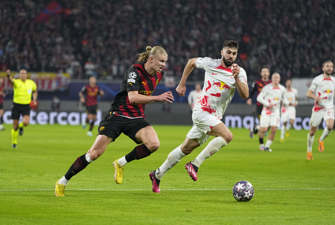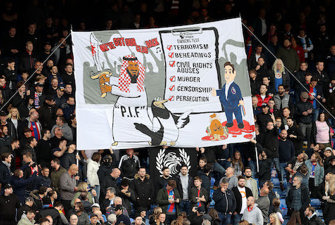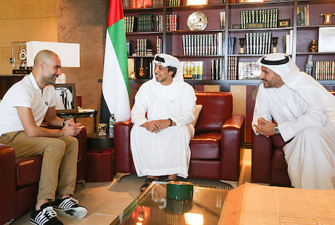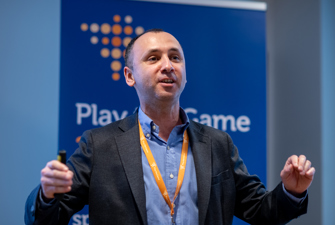Thousands of players are part of MCO groups without regulations that protect their interests
An estimated 13,000 players are now playing for clubs in multi club ownership groups (MCO), and the number of MCO groups continue to rise. Currently there is little regulation of these networks, and it poses a number of risks to players.
Multi club ownership (MCO) has boomed since Play the Game first began researching the subject in October 2021, and 134 MCO groups are now estimated to control or hold significant stakes in 366 clubs. An estimated 13,000 players are tied to those clubs, and the rise in MCO's has led to concerns about the protection of players.
“One of the risks is you put pressure on players to be moved around clubs with the same owner. We doubt that the current structures are always in the best interests of players and there is very little regulation,” says Roy Vermeer from the international players’ union FIFPRO.
The figure of 13,000 players is based on an estimate that uses the same number of around 36 players per club which UEFA has used in its 2022 benchmarking report which identified 180 clubs that are part of an MCO network with 6,500 players under contract.
Play the Game’s more recent research suggests that nearly two-thirds of those 13,000 players play in clubs in Europe, where 229 clubs are in MCO networks and are estimated to have more than 8,200 players on their books, and almost half of them (48%) are playing for top division clubs.
Figure 1: Number of players in MCO clubs in regional confederations
|
Confederation |
Division 1 | Division 2 | Division 3 and below | Total |
| UEFA |
3960 |
2232 | 2052 | 8244 |
| AFC |
1008 |
360 | 144 | 1512 |
| CONMEBOL |
504 |
108 | 108 | 720 |
| CONCACAF |
972 |
468 | 360 | 1800 |
| CAF |
324 |
216 | 324 | 864 |
| OFC |
36 |
0 | 0 | 36 |
| Total |
6804 |
3384 | 2988 | 13176 |
Lack of clarity about which club the player is signed for
One of the issues facing players who sign for clubs in MCO networks is which club they are signing for. When Mexican teenager, Alejandro Solorio left LA Galaxy at the turn of this year, the transfer was portrayed as undertaken by City Football Group (CFG) rather than the largest of their 12 clubs, Manchester City.
In subsequent transfer media reports, players continue to be linked with CFG rather than a specific subsidiary club.
For players, the upside of signing for a club in an MCO group is the chance to move up the pyramid, but the reverse also occurs. If the move happens against a player’s wishes, this could constitute breach of contract and would also likely mean that the signing-on fee for the player is smaller than if they were signed by a club from outside the network.
Issues with players being signed by multi-club ownership groups in Europe are not new. In 2020, Serbian defender Mario Maslac was forced to appeal to FIFA’s dispute resolution chamber after signing two contracts in February 2018 for respectively Latvian club Riga FC and Cypriot club Pafos, which are both owned by the same Russian emigres, Roman Dubov and Sergei Lomakin. Maslac was to play in the Latvian season from February to August, and then play the Cypriot season, which begins in August.
Maslac had his contract with Riga FC terminated in June 2018. Attempts to contact Pafos were ignored according to Maslac’s claim to the dispute resolution chamber, so in August he paid out of his own pocket to travel independently to Cyprus only to be told by Pafos that his contract had also been terminated in Cyprus. Pafos rejected Maslac’s claim, but it was upheld by FIFA's dispute resolution chamber, and the Serbian was awarded 88,420 Euros for breach of contract.
Examples of trafficking of young players
One of the prime motivations for investors to get involved in MCO networks is to save money on transfer fees by developing and moving players between clubs.
FIFA have so far eschewed any wider regulation on MCO networks, but under FIFA’s rules, players under 18 can transfer abroad providing their club provides them with an education and looks after them properly. Evidence of this must be provided to the national football association.
These rules do not apply to clubs in the European Union but FIFA is investigating a case of suspected player trafficking in Bulgaria that involves Russian businessman, Anton Zingarevich, who owns Botev Plovdiv, previously owned Reading in England and Danish club Fremad Amager, and has close links with FC Van in Armenia and academies in Africa.
The case involves the transfer of three young Nigerian players who went to Russia via Bulgaria, and the Bulgarian Football Union reportedly handed over all documents to FIFA earlier this year.
This is one case but rules on preventing player trafficking generally appear to be ineffective with French charity Foot Solidaire estimating more than 6,000 young players are trafficked from Africa to Europe every year.
New UEFA rules could encourage the development of MCO groups
According to UEFA’s latest Club Finance Investment Landscape report, 39 of its 55 member associations have rules restricting MCO groups in their top divisions, but this does not stop owners from buying clubs in other countries.
In March 2024, the European body quietly relaxed its rules for the 2024/25 club season. Changes to articles 5.04 and 5.05 of UEFA’s competition regulations mean that one club from a single MCO group can play in each of the Champions, Europa and Conference Leagues.
With all three competitions expanding to 36 teams in a single table format, this increases the likelihood of inter-linked clubs qualifying. The changes are a significant relaxation of the previous rules and essentially encourages the development of MCO groups with clubs at different levels.
UEFA’s rules do not allow players to play in the group stages of more than one competition but they can play in the qualifying stages and then switch clubs. This would allow an MCO group to shift a player from one club that has been eliminated in the qualifiers in one competition to another that has made the group stages while retaining overall control of the player.
While UEFA has generally adopted a laissez-faire approach to regulating MCO groups, new European Union rules targeting money laundering will have an impact. The rules, which come into force in 2029, will ensure that all investors with a stake of more than 15 per cent must be disclosed on an open register. This will improve the transparency of MCO groups where a number of investors with different stakes are currently not disclosed.
Like Manchester City, the Japanese football club Yokohama F. Marinos is owned by City Football Group. Photo: Masahira Uro / Getty Images
Non-payment and match-fixing in MCO networks in Asia
Play the Game’s research found 137 clubs outside of Europe whose owners own part or significant stakes in other teams. The largest number of players at clubs in MCO networks can be found in the CONCACAF region with at least 31 clubs in the USA and 13 in Mexico, where owners such as Grupo Pachuca and Orlegi are permitted to control more than one club.
The next largest region for clubs in MCO networks is Asia, where more than 1,400 players play for clubs, whose owners have interests in other teams. In Asia, these links are not always evident and have led to incidents of non-payment of players and also match-fixing.
Recently, the owner of Malaysian clubs Kuantan FA and Marcerra United FC was jailed after a six-year legal battle for non-payment of salaries totalling 1.2 million US dollars brought by more than 30 players with the help of FIFPRO. In India, two local businessmen were recently reported as controlling five clubs, whose players had allegedly been coerced into manipulating games.
The threat posed by MCO to players and the game’s integrity are not recent or confined to Asia. In 2018, Chinese ‘businessman’ Eric Mao was exposed as setting up a match-fixing network after building up a major MCO portfolio of clubs in Portugal, Ireland, Romania, Latvia, the Czech Republic, and Spain.
Players in MCO groups are more vulnerable due to financial interdependency
The growth in MCO groups increases the number of players who are – ultimately – controlled by the same individual or group.
Although 62 per cent of MCO groups are comprised of just two clubs, there are at least 50 MCO groups of three or more clubs. Using UEFA’s metric of approximately 36 players per club, one MCO of three clubs would control more than 100 players, while a larger group with a portfolio of half a dozen clubs such as Red Bull would have nearly 220 players on their books.
If even a medium-sized MCO group runs into financial problems and is unable to finance its debts, it could threaten the livelihood of hundreds of players at the same time.
Clubs invariably pay for players in stages rather than all at once. As a consequence, most clubs are owed money from player sales and at the same time owe money to other clubs for players they have signed. If one MCO group controlling a number of clubs collapses and is unable to service these payments, this could disrupt the transfer system and create financial contagion across a large number of clubs outside this MCO group.
Managing multiple football clubs is not easy as one major MCO group, Pacific Media, found in 2021/22, when three subsidiaries, British Barnsley, French AS Nancy and Danish Esbjerg fB, were all relegated.
In 2022/2023, four Belgian clubs then in a MCO network - Seraing, Virton, Oostende and KAS Eupen – were all relegated. Southampton also dropped out of the English Premier League and is set to be followed in the 2023/2024 season by another club in an MCO portfolio, Sheffield United, whose owners United World have already sold Chateauroux in France.
Relegation from the Premier League has a unique financial cushion of sizeable parachute payments but that is not the situation in other countries, where demotion invariably involves high-earning players being offloaded to balance the books. That then makes promotion harder to achieve in the following season and risks alienating fans. All of which makes repaying debts – or achieving returns for investors – harder.
The Chinese owners of Inter Milan took up a large loan to get through the COVID-19 pandemic and could find themselves unable to repay their debts. Photo: Mattia Ozbot - Inter / Getty Images
Investments in MCO networks have slowed down
According to a recent report by the International Centre for Sports Studies (CIES), there were 128 direct foreign investments in European clubs between 2019 and 2023, and 60 per cent of these were related to MCO groups at the time of the deal. An additional nine deals were struck by investors starting MCO portfolios in this five-year period, but in 2023 the number of investments by MCO groups slumped by 29 per cent.
This continued into 2024 with a number of exits in France, where Oaktree sold Caen, Nenking, the Chinese owners of Eastern Sports Club in Hong Kong, offloaded Sochaux, and United World sold Chateauroux. In each case, the clubs were taken over by local French businessmen.
Fernando Roitman, the author of the CIES report, says:
“We are coming off the back of a period of exceptional activity - most likely the result of the extraordinary market conditions laid down by the effects of the Covid pandemic and low interest rates. Given this, some sort of slowdown is not surprising."
“Several factors – including the rising cost of debt, high club valuations and an increased scarcity of clubs in immediate need of new ownership – might have contributed to the reduced frequency of majority takeovers. It’s probably too early to say whether this will translate into a decreased appetite for club acquisitions across the board. Even the cases of foreign investors selling up seem to be mostly related to league or club-specific considerations, rather than dynamics that are industrywide.”
Another complication is that there is a rise in minority investors, who made up 40 per cent of football investments in 2023 according to Deloitte’s 2024 Sport Investment Outlook report.
Research by London-based lawyers RPC found there was a 67 per dent increase in MCO deals last year, but partner Josh Charalambous says:
“It’s not massively slowing down, but there is a natural slow. There has been some regulation and things going badly at some MCO groups. I don’t think that people are necessarily put off, just that more is required when you are putting one of these consortia together as there are more people to keep happy.”
“If you don’t get it right, you end up under-investing and that brings more risk. You can see how you can increase the downside by just stacking clubs together.”
The CIES research also found that 54 per cent of the MCO deals carried out between 2019 and 2023 were made by US investors, who have descended on clubs left financially weakened by the Covid-19 pandemic. In some cases, these investors have their own money, but private equity groups and venture capitalists typically invest funds from elsewhere with owners who want a return.
This growing market in providing finance for football club investment is why JP Morgan, one of the main funders of the hugely divisive and failed attempt to set up a European Super League in 2021, recently set up a sports investment division.
If investors in MCO groups find themselves unable to repay their debts, funders can take control. This is a threat that hangs over Inter Milan – winners of 19 Serie A titles and three European Cups – after the club’s Chinese owners Suning negotiated a 275 million euro loan with Oaktree Capital in 2021 to get through the COVID-19 pandemic.
The loan is due for repayment by May 20, and if the obligation is not met, Oaktree will assume majority control, just as Elliott Capital Management did over Inter’s cross-city rivals AC Milan in 2018 when Chinese owner Li Yonghong defaulted on a loan.
Defaulting MCOs could send clubs to Middle Eastern owners
The danger is that MCO is just another investment bubble and the hordes of speculative investors descending on the game will find themselves unable to make the required return. Individual investors within groups may need to try and sell or face lenders calling in their loans.
Lenders would then find themselves inheriting a portfolio of clubs, which could then be offloaded at a profit to any willing buyer, which – at present – seems mainly to be sovereign wealth funds from the Middle East.
Those sovereign wealth funds are unlikely to want smaller clubs within these portfolios, which could end up being run down with a fire sale of assets such as players and stadia abandoned. This has already happened as Chinese investors have quit European football in droves over the past few years after the government in Beijing reigned in their plans to make the country a soccer power.
The impact of this withdrawal has seen one MCO group unravel in a spectacular – and salutary - fashion.
Chinese businessman Dai Yongge owned or controlled Beijing Renhe in his own country, Reading in England and the Belgian club KSV Roeselare. In 2019, Roeslare was declared bankrupt, Beijing Renhe was dissolved in 2021 and Yongge’s funding of Reading has dried up. In the 2023/2024 season, Reading was fined six points for payment irregularities, and in the January 2024 transfer window five young players were offloaded and popular senior player Tom Holmes was sold to Luton.
In February 2024, Yongge himself was fined £100,000 for ‘repeated failures to deposit an amount equal to 125% of the club’s forecast monthly wage bill in a designated account’. The English Football League has urged Yongge to either ‘fund the club adequately or make immediate arrangements to sell’.
The lack of financial support in Reading has led to waves of protests from fans and it is a salutary lesson of the significant impact on communities as well as players that the unravelling of MCO networks can have when owners lose interest and funds dry up.















